#China
Faraday Future Sets up Headquarters in China, Promises New Models and 5 Million Cars By 2028
Evergrande Health Industry Group Ltd, which owns a 45 percent stake in U.S.-based Faraday Future, said Tuesday that the electric vehicle startup has officially moved its headquarters to China. The group claims Faraday now plans on building five R&D and production facilities across the country over the next decade.
The intended goal is to have the startup reach an annual production capacity of 5 million vehicles within 10 years and launch multiple “premium to entry-level segments for the global auto market, to build an internet-based intelligent mobility ecosystem,” Evergrande said.
It sounds a little premature for a company that managed to evade certain death by the skin of its teeth — and only just snagged a manufacturing facility — a few months ago.
What's the Chinese Electric Car Startup Survival Rate? One Percent, An Investor Predicts
China has bit of a gambling problem when it comes to electric car manufacturers, though it should probably be referred to as a “gambling solution.”
The country dumps vast sums of money into hundreds of EV startups, effectively hedging its bets by placing chips on absolutely everyone. With $15 billion already invested, the nation intends to put another $47 billion toward the cause — plus whatever funding investment firms decide to contribute. While the strategy has definitely stimulated the economy, created jobs, and supersized the industry, there’s growing concern that creating a battle royale between startups could blow up in China’s face.
Even if it doesn’t, there’ll still be a bunch of automakers eating each other until only a handful remain. Previous estimates had that number riding around 5 percent of the whole. But NIO Capital, the Chinese investment firm that’s already invested a gratuitous amount of funds into advanced automotive tech, claims the actual number will be far lower — probably around 1 percent.
Trade War Watch: American-Made Mercedes-Benz SUVs Held Up at Chinese Ports Over 'Safety Risk'
Mercedes-Benz sport-utility vehicles assembled in Tuscaloosa, Alabama, are being checked for potential problems by Chinese customs authorities in Shanghai, according to the nation’s media. The situation was later confirmed by Daimler AG on Thursday.
Officially, custom agents discovered the imported GLE and GLS models possess “insufficient” rear brakes and pose a safety risk. However, this isn’t China’s first time holding up product from the Tuscaloosa factory. Daimler confirmed that its American-made SUVs, along with vehicles from Ford, were held up for several weeks in late April.
Ford Launching Cheap, 'Basic' Midsize SUV to Tempt China
Ford hopes to nab the attention of Chinese customers by unveiling a new midsize sport utility vehicle specifically designed for the region, placing an emphasis on more space for less money — a concept which would likely be appreciated worldwide. However, the model isn’t entirely new. The automaker is actually reviving the Ford Territory, an Australian-market crossover based on the defunct Falcon.
It’s a departure from the trend of Western manufacturers focusing on China’s appetite for luxury vehicles. Still, Ford may have missed its opportunity there. Chinese consumers swarmed Buick like flies on a carcass; Ford wasn’t so fortunate. It performed abysmally in The People’s Republic this year, posting 400,443 sales for the first half of 2018. That represents a 25 percent slip compared to last year’s volume and the worst first half since 2001.
GM Places Gun Against the Head of the Chinese-made Buick Envision
We previously reported that General Motors was seeking an exemption from U.S. tariffs that could affect the domestic wellbeing of the Buick Envision, the brand’s Chinese-made utility vehicle positioned between the Encore and Enclave. At the time, GM hadn’t weighed in on if it would pull the model from the United States if it didn’t get a pass into the country.
Since then, General Motors President Dan Ammanm has said the exception is the only way the automaker sees itself being able to continue selling the model in America. The automaker confirmed that the Envision’s domestic sales are insufficient to rationalize U.S. production but noted GM needed the model to have a complete lineup against brands like Audi, Lexus, and Mercedes-Benz.
Mercedes-Benz… Seriously?
Get Out of China Free Card: GM Wants the Buick Envision to Get a Pass on Import Tariffs
General Motors wants an exemption from a 25 percent U.S. tariff for the Buick Envision, the Chinese-made sport utility positioned between the Encore and Enclave. On Thursday, the automaker said it filed the request on July 30th with the U.S. Trade Representative to exclude the model from the prospective Section 301 tariff on products shipped from China.
The Envision hasn’t been a strong seller in the United States. While it managed to move 41,040 units in 2017, this year is not on track to meet that number. Obviously, the model has had some troubles. Early reviews were unfavorable, often accusing the Envision of being a faux luxury vehicle with an overly ambitious price tag. However, the manufacturer has since dropped the price and updated the vehicle for the 2019 model year.
Unfortunately, enough damage was dealt in those first two years to make the new model look less appetizing to customers. It now holds the stigma of an overpriced, Chinese-made compact crossover that falls short just about everywhere. It needs time to rebuild its image after the refresh, and it won’t be able to manage that if it is taxed into oblivion.
Tesla's Wild Second Quarter: Revenue Up, Losses Up, Cash Burn Down, and Some Head-scratching Statements
Tesla announced Wednesday that it lost $743 million in the second quarter of 2018, instantly pushing the automaker’s stock up by nearly double digit figures. No, this particular tidbit isn’t what investors hoped to hear, but CEO Elon Musk, who, unlike in past weeks, made it through the day without saying something overtly controversial, told them enough of what they wanted to hear.
The company’s revenue is up by over a billion dollars compared to the same quarter a year ago — $4 billion as a pre-tax total. Cash on hand was the lowest Tesla’s seen in two years ($2.2 billion), but the automaker’s reduced cash burn impressed some skeptics and reassured believers in Musk’s pledge to return to a positive cash flow in the third and fourth quarters. Having achieved its 5,000-Model-3s-per-week production goal, Tesla claims volume will crank up to 6,000 per week by late August. 10,000 per week comes in 2019.
There was even an apology from Musk for his bizarre behavior during a May earnings call, in which he snubbed analysts while acting like a bored teenager.
And did you know the Model 3 outsells all premium midsize sedans combined? Yeah, about that…
BMW Raising Prices on American-made SUVs in China, Willing to Absorb Some Tariff Costs
BMW says it will hike the price of two utility vehicles in China to cope with the additional cost of tariffs on U.S. car imports in the world’s biggest vehicle market. The models are the X5 and X6, both manufactured in South Carolina.
This news comes after China increased import duties on all automobiles from the United States to 40 percent earlier this month. China had previously said it would reduce its already high vehicle tariffs across the board as a sign of good faith — which it did, while simultaneously slapping new punitive tariffs on the U.S. Meanwhile, President Donald Trump has postponed prospective automotive tariffs while negotiations take place with Europe.
If you needed proof that a trade war is on and were wondering how automakers would handle it, look no further. BMW says it will have to raise the models’ Chinese MSRP by 4 percent to 7 percent. It’s a relatively modest increase considering how utterly massive the new import fees are, which indicates a willingness from the automaker to absorb some of the associated costs just to remain in the market. It’s something BMW is not alone in doing, and there could be a valuable lesson to be learned from that.
Hackett's Much-needed Stock Boost Is Nowhere in Sight
It’s generally agreed that former Ford CEO Mark Fields was shown the door after failing to turn around the company’s steadily declining stock, but his successor hasn’t had any success on that front, either.
Jim Hackett took over in May of 2017 and, despite an ongoing cost-cutting program and numerous new model (and technology) promises, Ford’s share price shows no lift. Wednesday’s earnings call was easily the worst of Hackett’s tenure.
Mike Manley Hits the Ground Running As Storm Clouds Gather Over FCA
Former Jeep and Ram boss Mike Manley was a top choice among the candidates competing to succeed Sergio Marchionne, but no one could have expected his ascension to the CEO’s chair would occur in such a sudden, tragic manner.
During his first earning call, Manley was forced to address not just his predecessor’s death — which occurred mere hours before investors, analysts, and journalists picked up the phone — but also the automaker’s slipping grasp on the Chinese market. FCA’s revenue and net income took a haircut in the second quarter of 2018. The company’s share price plunged in the wake of news of Marchionne’s death. And, last but not least, there’s tariffs flying left and right, cutting into the automaker’s earnings — indeed, the company has already readjusted its earnings forecast downward.
Some first week on the job.
You'll Never Guess Which Car Shoppers Distrust Chinese Vehicles the Most
Nah, that’s completely false. You know exactly which car buyers would turn up their noses at the prospect of bringing home a brand new Geely or GAC. (Aren’t these brand names inspiring?)
After becoming familiar names in Europe, new tariffs have made the imminent influx of Chinese-branded vehicles into the U.S. less than certain. Suddenly, the 2018 Detroit auto show, with its big display of shiny new GACs (including a luxurious minivan with La-Z-Boy-like rear seats), seems so long ago.
But pretend for a second that the new tariffs don’t exist, and that Chinese automakers are poised to open up American showrooms tomorrow. Who’s likely to consider one? Who isn’t? A recent study will almost certainly not surprise you.
The More You Know: There Are at Least 487 Electric Vehicle Manufacturers in China Right Now
We’ve mentioned Chinese startups working on electric vehicles in the past. You’ve got the American-based (but Chinese-owned) Faraday Future that couldn’t pay its bills, its big brother LeSEE (which is facing similar troubles), the performance-focused NIO, the luxury-minded Byton, the German-named Weltmeister, and a handful of others making ink every so often.
While EV startups from other countries (Tesla, Rimac, etc.) garner their own headlines, it’s more common to see a Chinese startup angling for media exposure as of late.
Of course, established automakers are busy setting up their own electric divisions to fulfill the nearly absent Western consumer demand for EVs. They’re gambling on a future where electrification replaces internal combustion, but nobody is betting more on “green” than China. As of today, it’s estimated that the country has 487 electric car companies, and the nation feels this still isn’t enough. Holy shit.
Trade War Watch: As Commerce Secretary Ponders Auto Tariffs During D.C. Hearing, Automakers Call Out the Troops
As the United States considers imposing new tariffs of up to 25 percent on imported automobiles and parts, the industry has rallied together to stand against the proposal. Manufacturers already made individual cases for themselves and are now dropping very bleak-sounding industry projections on the U.S. Commerce Department in the hopes of changing the administration’s mind.
However, President Donald Trump continues to promote the imposition of tariffs to force a sort of economic justice. For years, China’s protectionist policies regarding automobiles forced American manufacturers to build inside its borders and partner with Chinese firms for years. That’s something Trump claims could be a national security risk. China also recently upped its tax on American-made autos to 40 percent, shortly after promising to lower them. Meanwhile, Europe still holds a consistently higher tariffs on imported cars than the U.S., except for light trucks.
Commerce Secretary Wilbur Ross seems aware that China may have gamed the system in its favor, but appears less convinced that it’s a matter of national security. On Thursday, during a hearing on the probe into the industry, he said it was “too early” to say what the United States would do. Meanwhile, auto groups continue to make their terrifying case. (There’s also quite a bit of rolling PR in downtown D.C. today, as you’ll see below.)
Volvo's Already Shuffling Production to Avoid Tariffs
Unlike Volvo’s S90 sedan, which is built half a world away from its V90 wagon stablemate, the Chinese-owned Swedish automaker has some flexibility in where it sources its XC60 crossover. Two plants — one in China, one in Torslanda, Sweden — crank out the second-generation utility vehicle, but the U.S. market gets its full share from the Orient.
After the Trump administration imposed a tariff of 25 percent on Chinese-built vehicles, Volvo’s XC60 suddenly found itself dragging a financial anchor. Hardly a great situation for a model that outsold all other Volvos in the U.S. last month. To side-step the tariff, Volvo’s already making changes.
Say goodbye to the Chinese XC60.
Trade War Watch: Trump's Not Letting Up on Europe's 10 Percent Solution
The past week has seen a flurry of trade trade announcements — none of them particularly promising for the United States. After a brief moment where President Donald Trump’s tariff threats seemed to have a positive impact on the European Union, Germany threw new support behind China as the People’s Republic issued a stunningly large 40-percent retaliatory tax on vehicles imported from America.
While Europe and the U.S. still might work out a zero tariff deal on automobiles, the recent activity has led Trump to respond with another warning. He now claims if the region cannot engage in fair trading practices with the United States, he’ll further restrict imported cars.




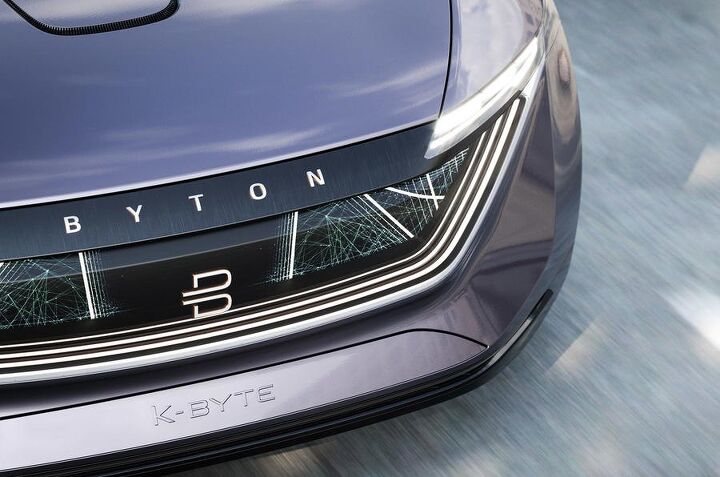


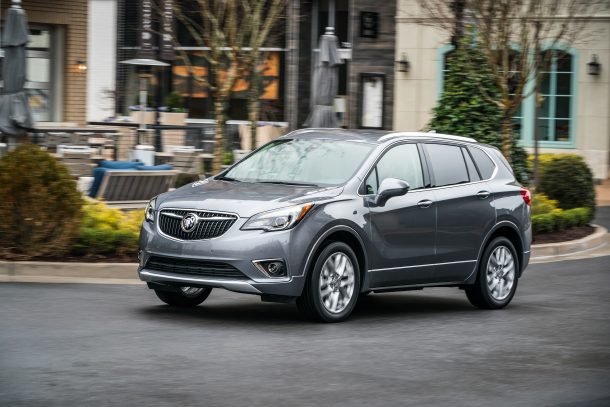



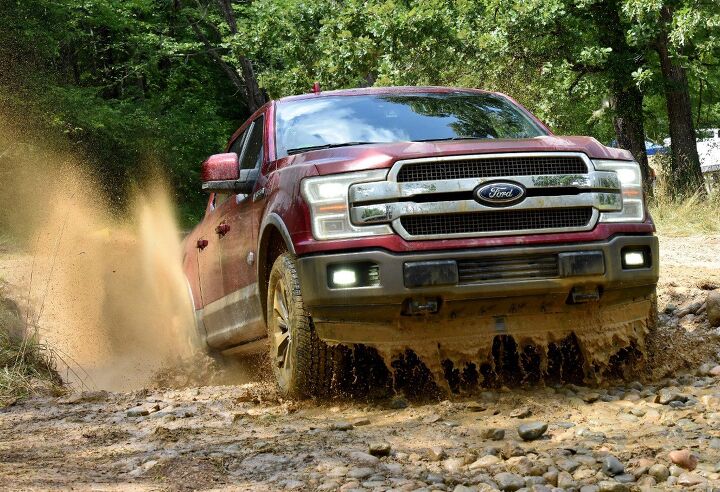




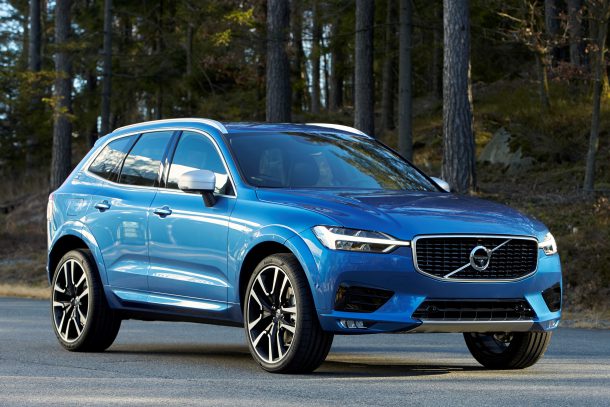
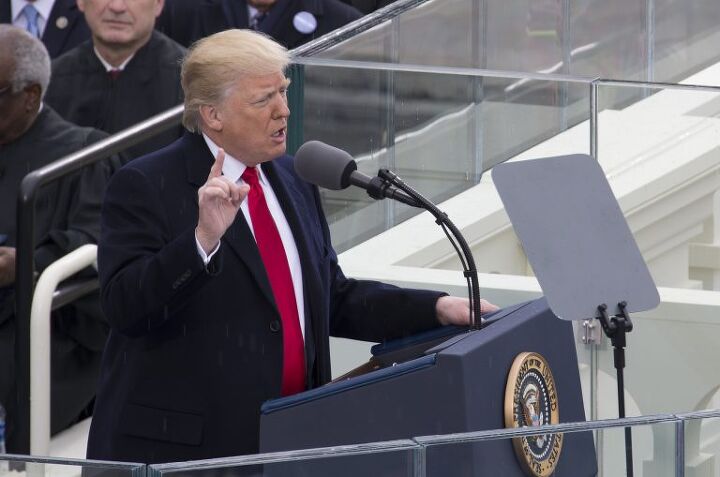












Recent Comments